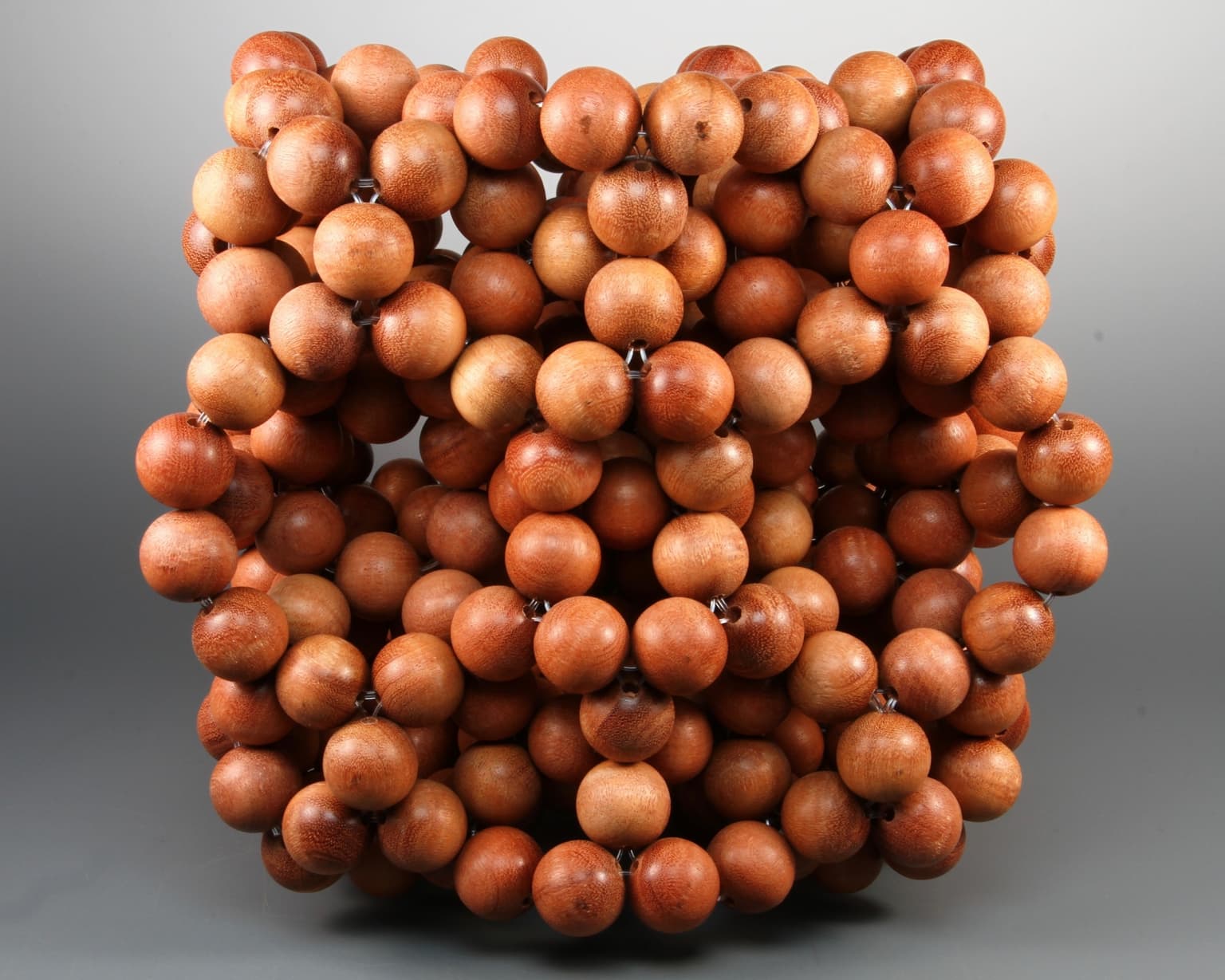2017 Joint Mathematics Meetings
Chia-Chin Tsoo & Bih-Yaw Jin
Artists
Bih-Yaw Jin
Professor
Department of Chemistry, National Taiwan University
Taipei, Taiwan
Statement
Clathrate hydrates are non-stoichiometric crystalline compounds consisting of water and small guest molecules such as methane. In these compounds, guest molecules or atoms are trapped inside polyhedral cages formed by a periodic framework of hydogen-bonded water molecules. Here, we show that the mathematical beading can be used to construct the hard-sphere open packing models of these clathrate structures, in which spherical beads represent valence electronic pairs of oxygen atoms; while smaller positive oxygen cores hidden inside the tetrahedra are not shown in the model.
Artworks

Bead model of Type I Clathrate (Weaire–Phelan) structure
20 x 20 x 20 cm
Wooden beads
2016
Weaire–Phelan structure, which gives a better solution to the "Kelvin problem" than the previous best-known Kelvin structure, is closely related to the Type I Clathrate structure. The crystal structure of Type I Clathrate can be considered as a three-dimensional tessellation of dodecahedra and tetrakaidecahedra, in which dodecahedra form a body centered cubic arrangement and tetrakaidecahedra fill the remaining space.